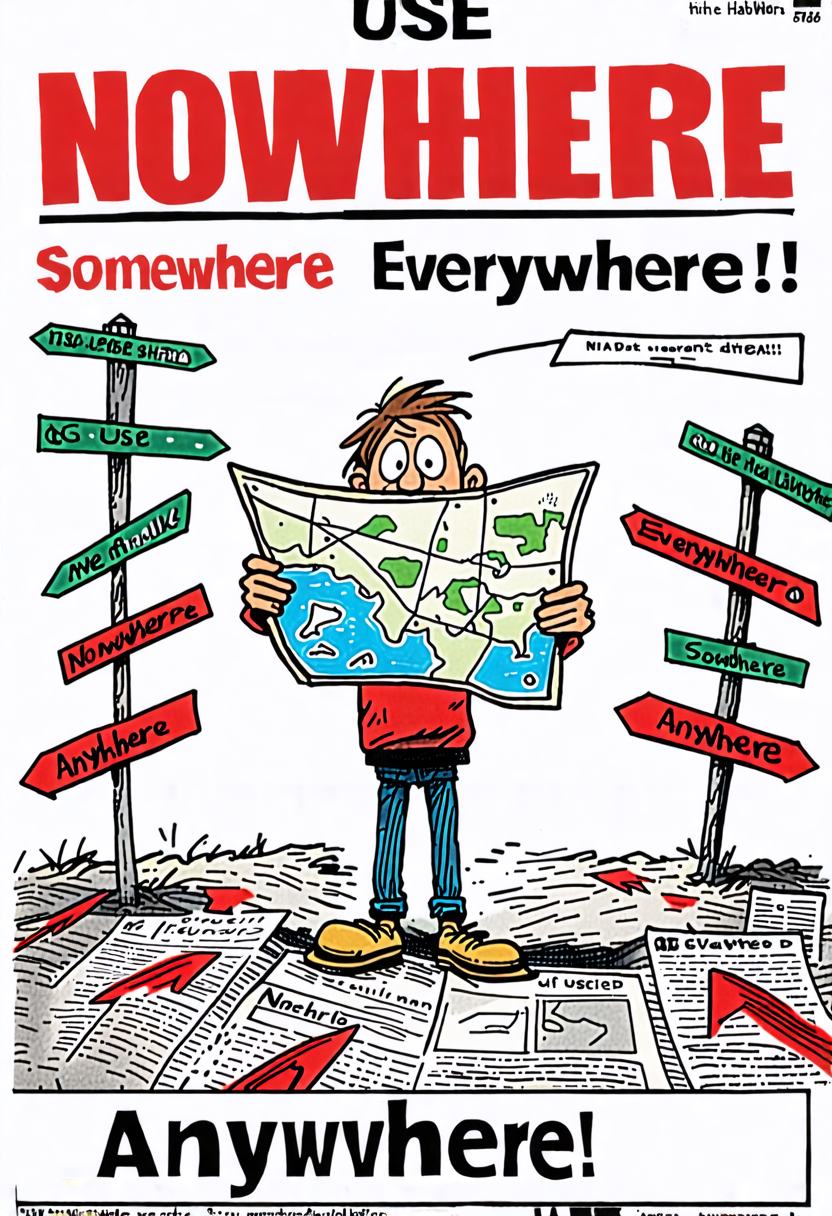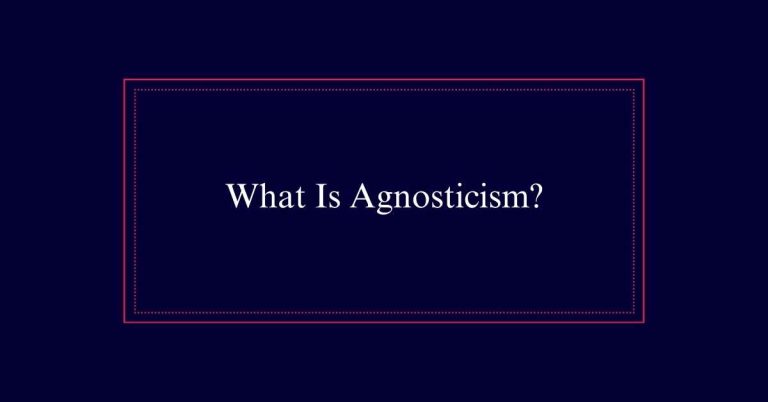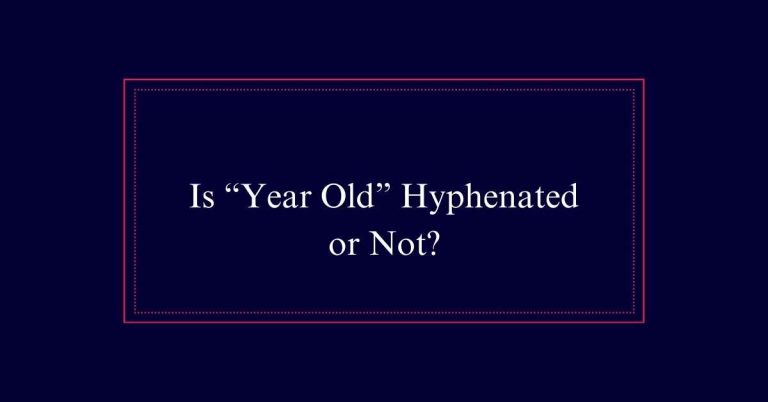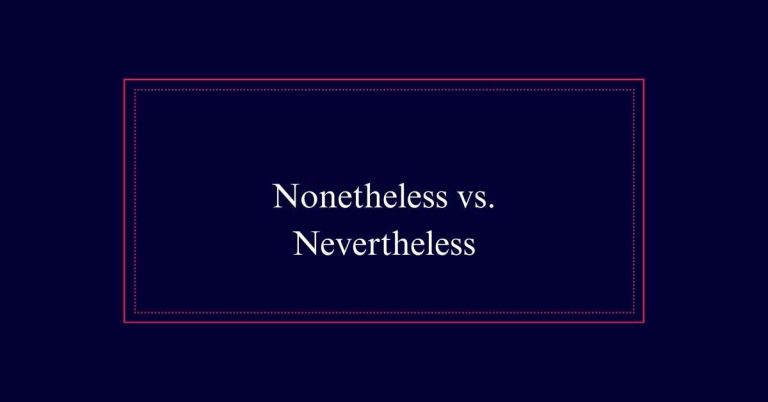How to Use Nowhere, Somewhere, Everywhere, Anywhere?
Understanding how to use ‘nowhere,’ ‘somewhere,’ ‘everywhere,’ and ‘anywhere’ is essential for effective communication. ‘Nowhere’ signifies the absence of a place and is often used negatively. ‘Somewhere’ refers to an unspecified but existent location. ‘Everywhere’ indicates presence in all places, denoting ubiquity. ‘Anywhere’ provides flexibility, indicating any place without specificity.
Understanding ‘Nowhere’
Understanding the word ‘nowhere’ involves recognizing it as both an adverb and a noun, signifying the absence of any place or the existence of no place at all. As an adverb, ‘nowhere’ indicates that something is not found in any location. For example, ‘The trail was nowhere in sight.’
As a noun, it describes a place that does not exist or is undefined, often emphasizing isolation. For instance, ‘That town is in the middle of nowhere.’
In both uses, ‘nowhere’ conveys a sense of absence or non-existence, making it a versatile term. Its usage helps to express the concept of being in or moving to a place that is undefined or nonexistent.
Correct Usage of ‘Nowhere’
To guarantee proper usage of ‘nowhere,’ it’s important to understand its function in different contexts. It can serve as an adverb or noun, signifying the absence of a specific place. Here are four key points to remember:
- Adverb Usage: ‘Nowhere’ describes the absence of location. For example, ‘The trail was nowhere in sight.’
- Noun Usage: It can denote a non-existent place. For instance, ‘That town is in the middle of nowhere.’
- Negative Connotation: Often used in negative sentences, such as, ‘There’s nowhere I’d rather be than at home.’
- Emphasis on Absence: Highlights the lack of location. An example is, ‘The book was nowhere to be found.’
Common Mistakes With ‘Nowhere’
Misusing ‘nowhere’ often leads to confusion and weakens the intended message. Common mistakes include using ‘nowhere’ when ‘anywhere’ or ‘somewhere’ would be correct. For instance, saying ‘I can’t find my keys nowhere’ is incorrect; the correct sentence is ‘I can’t find my keys anywhere.’ Another error is combining ‘nowhere’ with double negatives, such as ‘There isn’t nowhere to park.’ Instead, say, ‘There is nowhere to park.‘
| Mistake | Correction |
|---|---|
| I can’t find my keys nowhere. | I can’t find my keys anywhere. |
| There isn’t nowhere to park. | There is nowhere to park. |
| The event is happening nowhere. | The event isn’t happening anywhere. |
Understanding ‘Somewhere’
‘Somewhere’ is used to refer to a specific but unidentified location. It implies that the place exists, but its exact position is not known. This term can be both an adverb and a noun.
Here are key points to keep in mind:
- In everyday speech: ‘I know my phone is somewhere in my apartment.’
- In literature and songs: ‘Somewhere over the rainbow…’
- In general references: ‘We’ve met somewhere before, haven’t we?’
- In questions or uncertainty: ‘Is there somewhere we can sit?’
Using ‘somewhere’ helps convey a sense of vagueness while still pointing to a real place. It is distinct from ‘nowhere,’ which denies the existence of a place.
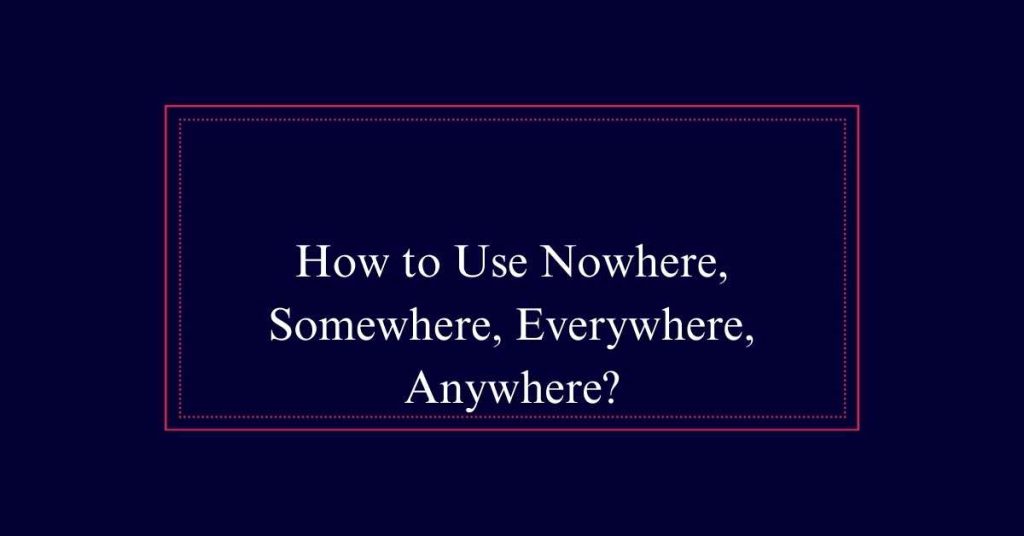
Correct Usage of ‘Somewhere’
Understanding how to correctly use ‘somewhere’ enhances clarity in communication, whether in daily conversation or written text. ‘Somewhere’ refers to an unspecified location that is known but not precisely identified. It can function as both an adverb and a noun.
For example, ‘I know my phone is somewhere in my apartment,’ uses ‘somewhere’ to indicate an unknown specific place within a larger known area. Similarly, ‘We’ve met somewhere before, haven’t we?’ implies a specific but unremembered location.
Using ‘somewhere’ accurately guarantees that the listener or reader understands that a specific, though unidentified, place is being referred to. This precision in language aids in effective and clear communication.
Common Mistakes With ‘Somewhere’
One common mistake with ‘somewhere’ is using it when a more precise location is needed. This often leads to confusion and lack of clarity.
Here are four common errors to watch out for:
- Misplaced Object: Saying, ‘My keys are somewhere in the house,’ when you should specify, ‘My keys are on the kitchen counter.’
- Vague Directions: Using, ‘Meet me somewhere downtown,’ instead of providing a clear spot like, ‘Meet me at the coffee shop on Main Street.’
- General Statements: Saying, ‘The document is somewhere in the office,’ rather than, ‘The document is in the top drawer of my desk.’
- Unclear Travel Plans: Mentioning, ‘I will travel somewhere next month,’ instead of specifying the destination, ‘I will travel to Paris next month.’
Understanding ‘Everywhere’
‘Everywhere’ is a versatile word that signifies presence in all places or parts. It is often used to describe something or someone that can be found in every location without exception.
For example, ‘The festival draws people from everywhere.’ This indicates that attendees come from all regions. Another example is, ‘There were dandelions everywhere I looked.’ This means dandelions were present in every part of the area observed.
Everywhere’ can also convey a sense of ubiquity, as in, ‘Everywhere I go, I always seem to run into friendly people.’ Here, it suggests that friendly people are found in all places you visit. Understanding ‘everywhere’ helps in portraying an all-encompassing presence.
Correct Usage of ‘Everywhere’
Mastering the correct usage of ‘everywhere’ involves understanding its role in conveying a sense of ubiquity. This word is used to indicate that something is present in all places or parts. To guarantee correct usage, consider these examples:
- Describing Presence: ‘There were flowers everywhere in the garden.’
- Indicating Reach: ‘The news spread everywhere overnight.
- Expressing Perception: ‘Everywhere I looked, I saw smiles.’
- Generalizing Experience: ‘People from everywhere attended the event.’
In each instance, ‘everywhere’ emphasizes that the subject is all-encompassing. Using ‘everywhere’ correctly enhances clarity and precision in communication, making it clear that the scope is broad and inclusive. This ensures effective transmission of the intended message.
Common Mistakes With ‘Everywhere’
Many people misuse ‘everywhere’ by applying it in contexts where ‘anywhere’ or ‘somewhere’ would be more appropriate.
For example, saying ‘You can find it everywhere in the store’ might be misleading if the item is only in specific sections. In this case, ‘anywhere’ or ‘somewhere’ would be more accurate.
Another common mistake is ‘They traveled everywhere,’ when the intent is to convey they traveled extensively but not literally to every place. A better choice might be ‘They traveled widely’ or ‘They traveled to many places.’
Clarity in word choice ensures precise communication. Always consider the exact meaning you wish to convey when choosing between ‘everywhere,’ ‘anywhere,’ and ‘somewhere.’ This will help you avoid common errors.
Understanding ‘Anywhere
In contrast to the precise nature of ‘everywhere’, the term ‘anywhere’ offers flexibility and non-specificity in its usage. It refers to any place without pinpointing a particular location. This versatility makes it suitable in various contexts.
To use ‘anywhere’ effectively, consider the following:
- General Possibility: ‘They could be anywhere by now.’
- Lack of Specific Location: ‘I don’t have anywhere to put that.’
- Unlimited Choices: ‘She could go anywhere she wanted.’
- Indeterminate Locations: ‘Is there anywhere we can find that book?’
Understanding the flexible nature of ‘anywhere’ can enhance your communication by conveying broad possibilities and options without the need for definite places.
Frequently Asked Questions
Can ‘Nowhere’ Be Used in a Positive Context?
Yes, ‘nowhere’ can be used positively. For example, “There’s nowhere I’d rather be than at home with my dog.” This sentence expresses a preference for a specific place over all others.
Is ‘Somewhere’ Always a Physical Location?
No, “somewhere” is not always a physical location. It can also refer to a point in time or an abstract place. For example, “Somewhere in the future, we will find a solution.”
How Do ‘Everywhere’ and ‘Anywhere’ Differ in Meaning?
“Everywhere” refers to all places without exception, while “anywhere” refers to any place without specifying which one. For example, “I searched everywhere” means all locations, whereas “I could go anywhere” means any possible location.
Can ‘Anywhere’ Imply a Virtual or Non-Physical Space?
Yes, “anywhere” can imply a virtual or non-physical space. For example, one could say, “You can access the internet from anywhere,” indicating both physical and virtual locations without specifying a particular place.
